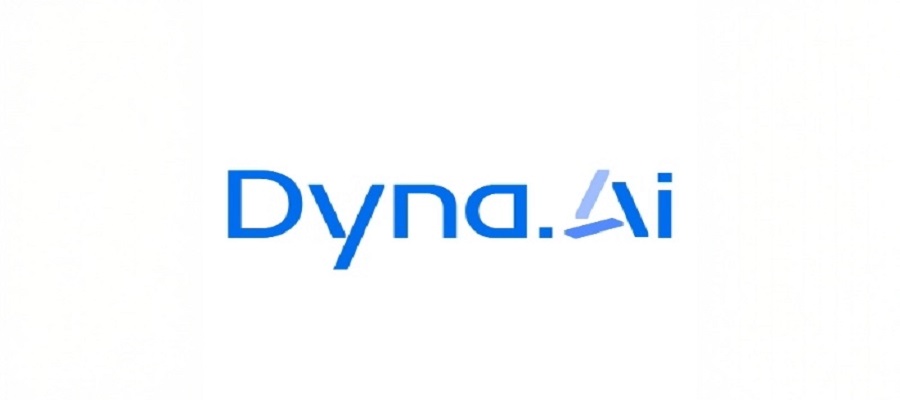E-Business
Analyst Picks Holes in Proposed AU Cybersecurity Convention

A proposed African Union (AU) convention seeking to step up the fight against cybercrime across Africa has critics up in arms over its potential to curb internet freedoms, according report by ITWeb Africa.
The African Union Convention on Cyber Security (AUCC), awaiting voting on in January 2014, proposes “establishing a credible framework for cyber security in Africa through organisation of electronic transactions, protection of personal data , promotion of cyber security, e-governance and combating cybercrime.”
The AU is, apparently, seeking to establish the convention because of what it says are African states’ “dire need of innovative criminal policy strategies that embody states, societal and technical responses to create a credible legal climate for cyber security.”
The move to introduce the convention comes as cyber crime levels in Africa are growing.
It could be recalled that the Norton Cybercrime Report for 2012, the likes of South Africa hosts the third-highest number of cyber crime victims in the world, behind only Russia and China.
In addition, the South African Cyber Threat Barometer 2012/13 put the total direct losses to cybercrime in South Africa between January 2011 and August 2012 at R2.65 billion.
But Kenyan based Strathmore University’s Centre for Intellectual Property and Information Technology Law (CIPIT) has hit out at the proposed AU cyber security convention and called for the convention not to go ahead in its current form.
The centre says the convention, if adopted as is, could abuse Africans’ right to privacy, harm freedom of expression, introduce legislative overkill and place too much power in the hands of judges.
A draft version of the convention allows judges, in the “public interest”, to call for the interception of individuals’ electronic communications without permission from these individuals.
“Our first concern is the omission to the right to privacy,” Rene Enoakpar of Strathmore University’s CIPIT told ITWeb Africa.
“The issue of public interest is complex because it has no unified meaning,” he said.
Enoakpar explained to ITWeb Africa that regulatory agencies in Africa could have varied interpretations of what is in the public interest.
He also said that these interpretations could reflect interests of political actors, especially governments, which in turn makes this provision problematic.
Furthermore, the ability to interfere with traffic data without permission could risk freedom of expression on the continent as well.
“With this provision, we think the right to freedom of expression will be seriously curtailed,” Enoakpar said.
Other aspects of the convention introduce what Enoakpar said is “legislative overkill.”
Enoakpar said the bill wants increased focus on crimes committed with online resources or computers. But he said this provision could make it possible for aggravation in situations where, for example, a criminal robs a bank after sending an email.
Other concerns regarding ‘legislative overkill’ include parts of the convention that want corporate bodies to be held responsible for offences that individuals commit using the corporations’ technology.
The convention also wants service providers to conduct vulnerability testing for their technologies: a requirement that could hold back e-commerce on the continent, Enoakpar said.
As a last concern, Enoakpar said the convention “grants absolute power to judges.”
Enoakpar added that judges on the continent are not adequately trained to deal with cybercrime and cyber security, making this absolute power even more problematic.
In a bid to stop the convention then from being adopted in its current form, the Strathmore’s CIPIT has started a campaign to oppose the ratification of it by the AU.
The centre has petitioned Kenya’s parliament through an open letter regarding the convention. The petition is sponsored and endorsed by the likes of search giant Google and technology innovation centres iLabAfrica and Nairobi’s iHub.
“We call attention to the fact that the context within which it is being passed will make the convention unfeasible,” Enoakpar told ITWeb Africa.
“We think that there is need for substantive revision,” Enoakpar said.
However, while the CIPIT and its supporters are looking to stop the AU cyber security convention from being adopted in its current form, the organisation does nevertheless want an Africa focused convention on cyber security.
African countries such as South Africa are looking to implement data privacy laws such as the Protection of Personal Information (POPI). But for those countries that do not have such endeavours as yet, there is a need for a guiding framework such as an AU cyber security convention, Enoakpar told ITWeb Africa.
But that framework cannot jeopardise civil liberties, contain legislative overkill or hand over too much power to judges, Enoakpar said.
“The nature of cybercrime is transnational, and that notwithstanding I know many African countries do not have an effective legislation on cybercrimes.”
“A good starting point would be for the African Union (AU) to come up with a model law on cybercrime,” said Enoakpar.
E-Business
Farmers to Get Identity Card for Loans, Inputs

The federal government, in collaboration with the International Fund for Agricultural Development (IFAD), is building a digital registrar that will identify farmers, their farmlands, type of soil and the crops they grow for targeted services.

The information and the National Identification Number (NIN) will be integrated into a multipurpose identity card that farmers can use to access financial services, inputs and other forms of government assistance.
The digitisation is expected to harmonise farmers’ data across all the 36 states and the Federal Capital Territory.
Speaking at the national launch of the Policy Dialogue Initiative on the National Digital Farmers Registry (NDFR) recently in Abuja, Dr Marcus Ogunbiyi, permanent secretary, Federal Ministry of Agriculture and Food Security (FMAFS), said the new system would address the issue of portfolio farmers, whom he described as “farmers who have no farm.”
“We are going to register farmers and their farms. Not only that, farmers and the type of crop they grow, farmers and the locality they are, the type of soil they have on their farms. There is no farm that will not have a farmer. But there are many farmers who do not have farms. This is an encompassing package.
“When we register these farmers, we are going to provide a physical and digital card for them. With the card, many things can be done by the farmers. It can be used as a means of identification, an asset to some gateway – just anything. It is going to have a handshake with the database of the country, such that with that particular card, the farmer can enter any place and get things done. He or she can redeem inputs and even get a loan, depending on the financial entity,” Ogunbiyi explained.
He said that to accomplish this, the Federal Ministry of Agriculture and Food Security has taken decisive steps to transform their approach to farmer data management, adding, “Chief among these is our strategic partnership with the National Identity Management Commission (NIMC) to implement a far-reaching farmer registration and database project. At the heart of this initiative is the integration of the NIN, which ensures that every Nigerian farmer is uniquely identified and seamlessly integrated into a national agricultural system.”
Mrs Dede Ahoefa Ekoue, country director/representative of the IFAD in Nigeria, said the United Nations (UN) organisation was proud to be part of the initiative on the National Digital Farmer Registry in Nigeria.
“Our role is to convene all the partners, development partners from the public sector, private sector and the international community to put our resources together to support the effort of the government in establishing and enabling a digital farmer registry for the country,” she said.
Mrs Ekoue said that although there were previous efforts to have a national database of farmers, it had the issues of fragmentation and sustainability.
“The government is now providing us with a sense of direction and matching orders to all the actors to work together. This is what we are doing today with several partners, including the African Development Bank, FAO, the World Bank, the EU, the Islamic Development Bank and UK. Also, what is very key is farmers’ organisations because it is about them, it is for them, it must be with them,” she added.
The country director said the IFAD was happy to bring together the private sector and different ministries, departments and agencies, adding, “It will be a game changer for having a strong, updated and sustainable national digital farmer registry.”
Dr Lekan Tobe, the country director of Heifer International in Nigeria, in his remarks at the official launch of the Policy Dialogue Initiative on the National Digital Farmer Registry, emphasised the critical role of partnership and data in transforming Nigeria’s agricultural sector.
He said that this initiative, born from recommendations of previous policy dialogues organised in collaboration with the federal government, aimed to scale up innovative digital technology to enhance food systems across the country.
E-Business
Dyna.Ai Launches Operations in Nigeria

Dyna.Ai, a global leader in AI-as-a-Service (AIaaS), has launched its operations in Nigeria with an exclusive closed-door ‘Nigeria Dyna Day’ event in Lagos, which saw the introduction and orientation of its suite of AI-powered products and solutions to Nigeria’s emerging financial ecosystem.

The event, tagged ‘Nigeria Dyna Day’ and themed “AI Unleashed: Revolutionising Nigeria’s Financial Future,” brought together leading voices from the country’s AI, financial, fintech, telecom, and other key sectors, including representatives from government agencies and major enterprises.
In his opening remarks, Tomas Skoumal, chairman and co-president of Dyna.Ai, emphasized the strategic importance of Nigeria and the broader African market, stating, “For us, it makes sense to start in Nigeria.
There is no bigger country in Africa—this is where the momentum is.” He noted that Africa is no longer just “the future,” but is actively transforming today, driven by rapid digitalization and fintech innovation.
“This is the perfect time to be here,” he added, highlighting that Dyna.Ai sees technology as a vital bridge to financial inclusion and long-term growth across the region.
Skoumal introduced Dyna.Ai’s advanced Agentic AI solutions, including its proprietary Agent Studio and industry-specific language models, designed to power intelligent automation across customer service, marketing, collections, HR and more.
He also underscored the company’s long-term ambition to invest in local talent, stating, “We’re not just here to sell a product—we’re here to build infrastructure, create local jobs, and scale innovation from Nigeria to the rest of Africa.”
Dyna.Ai also showcased its advanced AI technologies at the event, including AvatarGPT, an AI digital human delivering interactive experiences; VoiceGPT, a voice agent featuring authentic local accents for seamless communication in Yoruba, Hausa, and Igbo; along with live demonstrations showing how these innovations empower customer engagement and employee experience.
Delivering the keynote address at the event, Tokoni Peter Igoin, Special Assistant to the President on ICT Development and Digital Innovation, underscored the Federal Government’s vision for a secure and forward-thinking digital ecosystem.
“The government of the Federal Republic of Nigeria, under the visionary leadership of His Excellency, President Bola Ahmed Tinubu, is fully committed to responsible innovation. Our approach to AI and financial technology is rooted in a positive framework. It encourages creativity while ensuring transparency, data protection, and digital security”, he said
Also in his remarks, Olatunbosun Alake, Lagos State Commissioner of Innovation, Science and Technology, gave insights from the government/regulatory perspective.
He announced that the Lagos State government is also taking steps towards the wide adoption and regulation of artificial intelligence in the state with the planned release of the first AI guidelines for the deployment and management of AI in the coming weeks.
E-Business
Survey Reveals Marketing Leaders See Strong Potential in gTLDS Despite Knowledge Gap

A new global survey from the Internet Corporation for Assigned Names and Numbers (ICANN) reveals that 52% of marketing leaders believe generic top-level domains (gTLDs – the three characters or more that come after the dot in a URL) have strong potential for enhancing brand presence online; however, a knowledge gap is preventing many brands from taking advantage of the opportunities that a gTLD can bring.

The research surveyed over 2,000 marketing leaders across eight countries (Brazil, China, India, Mexico, Nigeria, South Africa, U.K., and U.S.) with the purpose of creating a picture of the evolving digital marketing landscape and understanding the levels of awareness around gTLDs.
It comes as ICANN prepares to open the next application window for new gTLDs in April 2026 the New gTLD Program: Next Round – the first opportunity in more than a decade for organizations to apply to operate their own gTLD.
Top-level domains are the letters found at the end of an Internet address (with gTLDs including .charity, .menu, .paris and .ceo). Brands can apply to run their own gTLD as a way to indicate the purpose of their organization or to clearly mark a website as being related to their brand.
The research shows that increasing brand awareness and visibility is the top priority for marketing leaders (54%) and that over half believe that gTLDs have strong potential for enhancing brand presence online.
However, the research also shows that almost a third (32%) of marketing leaders surveyed are unfamiliar with gTLDs, which suggests that operating a new gTLD may be a strategic opportunity that many organizations are currently overlooking.
Key findings from the research include:
- After defining a gTLD, 92% of marketing leaders responded that they could see the potential benefits to gTLDs, with enhanced brand differentiation (46%), improved customer trust (45%), better control over online presence (44%), and improved SEO (44%) topping the list.
- 19% of marketing leaders work for organizations that have previously applied for a gTLD.
- Cost concerns (31%), knowledge gaps (27%), and insufficient resources (24%) were identified as the main barriers to application.
- The research revealed notable regional variations, with Nigerian (74%) and Indian (61%) marketing leaders showing the strongest belief in gTLDs’ potential for branding and online presence. In contrast, marketers in China expressed more mixed views, with 50% seeing strong potential but 49% considering gTLDs an unnecessary investment with unclear Return On Investment.
The findings come at a time when marketing leaders are facing significant challenges in standing out from competitors (53%), attracting and engaging the right audience (52%), and keeping pace with digital trends (47%).
A new gTLD can be an innovative tool for commerce and communication. They allow businesses in specific countries, sectors, or niche markets to create an exclusive, descriptive, and memorable label on the Internet.
An entity operating a gTLD can provide its users and customers with an extra measure of confidence in its security and legitimacy online. This can be valuable in today’s environment, where users often don’t know whether they can trust the source on the Internet.
Theresa Swinehart, SVP, Global Domains & Strategy said: “The New gTLD Program: Next Round presents an opportunity for businesses, communities, governments, and others to apply to operate their own secure space online, tailored to fit their organization, community, culture, language, and customer interests.
Now is also the moment for brands to consider applying for a gTLD, and this research tells us there is still a lack of awareness. ICANN can help provide information and raise awareness of the Next Round and the opportunity it presents for global communities, organizations, and businesses, including brands.”
To help address the knowledge gap, ICANN is developing resources to help organizations understand the application process and potential opportunities for gTLDs ahead of the 2026 application window. ICANN also offers the Applicant Support Program (ASP), which provides financial and non-financial assistance to eligible applicants.

 General News3 days ago
General News3 days agoUche Uzoebo, SANEF CEO Makes Case for More Financial Inclusion Strategies Targeting Women

 Broadcasting3 days ago
Broadcasting3 days agoACAMB Champions Bankers Wellness with Aerobics Fitness Session

 General News3 days ago
General News3 days agoHydrogen, Lagos State Touch Thousands of Business Owners with “Healthy Heart, Healthy Business” Outreach

 News3 days ago
News3 days agoUK Minister for Africa Visits Nigeria to Deepen Strategic Partnership

 E-Business3 days ago
E-Business3 days agoSurvey Reveals Marketing Leaders See Strong Potential in gTLDS Despite Knowledge Gap

 News22 hours ago
News22 hours agoSERAP Sues NNPC over Alleged Missing ₦500Bn, Seeks Accountability

 News22 hours ago
News22 hours agoFirst Asset Management Receives 2024 Fund Manager Award

 General News22 hours ago
General News22 hours agoNigeria Relaunches National Talent Export Programme to Unlock $1 Trillion Global Outsourcing Market



























